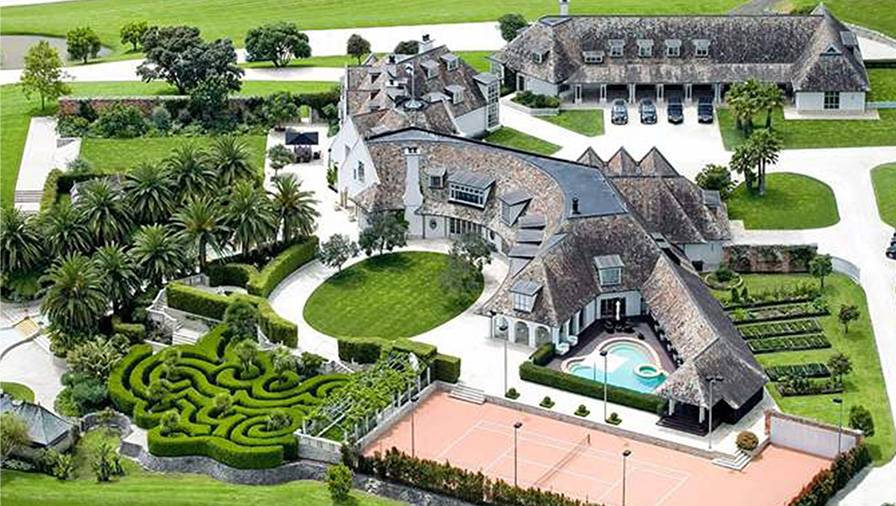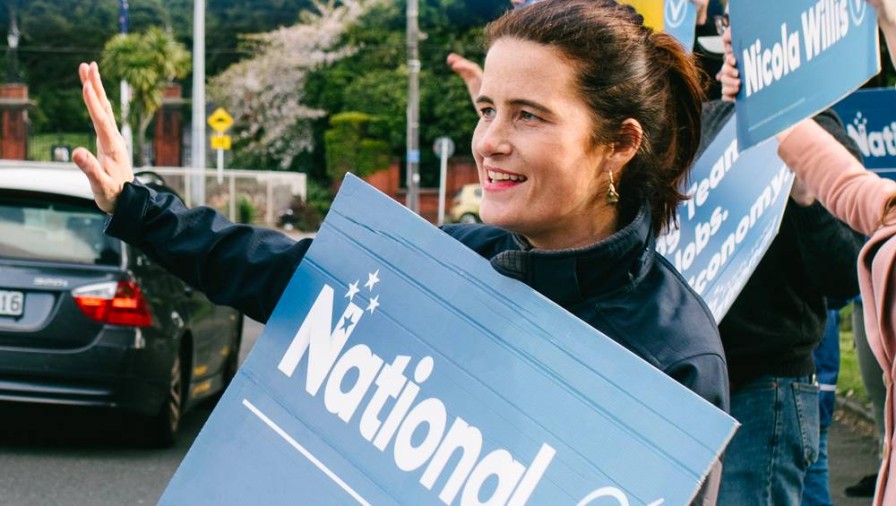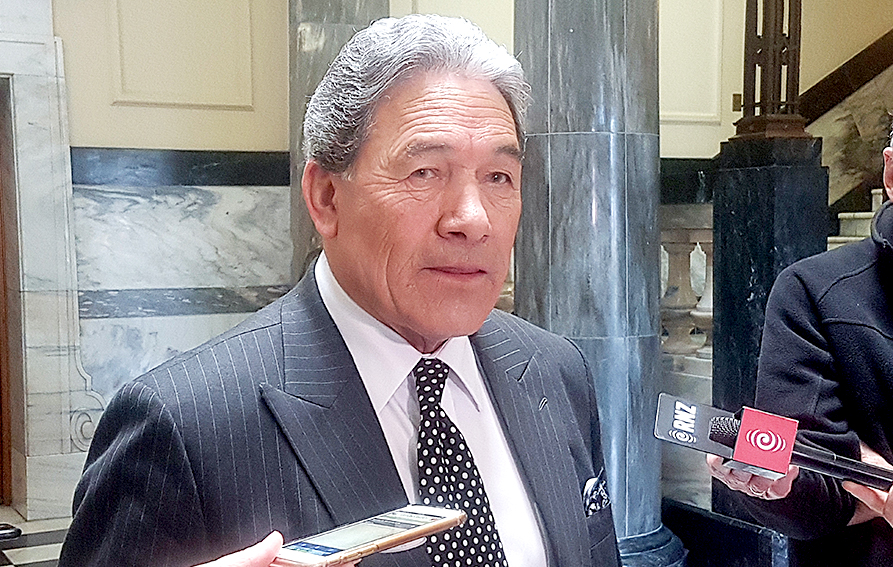Quibbles over money, what’s affordable, polls, the campaign trail
ANALYSIS: National is still under pressure over its tax cut plan.
WATCH: NBR political editor Brent Edwards speaks with Maria Slade.
ANALYSIS: National is still under pressure over its tax cut plan.
WATCH: NBR political editor Brent Edwards speaks with Maria Slade.
In the second full week of election campaigning, there has been plenty of political posturing and a lot of numbers.
The Pre-election Economic and Fiscal Update (Prefu) was released this week and, as expected, the fiscal position is worse than forecast in the May Budget, even if the Treasury is predicting the country will avoid a second recession.
Budget deficits are forecast to last another year – with the books not getting back into surplus until 2026-27. Net debt will rise more than expected and there will be tight constraints on whichever parties form the next government. Spending options are limited, with choices to be made between finding savings elsewhere or raising more money through tax increases.
Much of the change from the Budget forecasts is being driven by a lower than expected tax take. In the year to the end of June, tax revenue was $2.9 billion lower than the Treasury had forecast in May and that is expected to flow through to subsequent years.
Despite the budget constraints, parties are still making promises on the campaign – which potentially carry hefty price tags – and it is important to note the Treasury’s latest update is based solely on government decisions already made, not on campaign promises put forward by any of the parties.
That means policies such as Labour’s commitment to take GST off fresh fruit and vegetables, or National’s promise to raise income tax thresholds, bring back interest deductibility, and reduce the bright line test from 10 to two years are not included in the Treasury calculations.
National has also come under more scrutiny over its tax policy, particularly over its assessment that up to $740 million of the cost of the tax cuts can be met from a new foreign buyers’ tax on purchases of residential property worth more than $2m. A new report from economists Sam Warburton and Michael Reddell estimates National will earn $210m a year at best from the new tax.

The mansion formerly owned by Kim Dotcom.
National rejects that modelling but refuses to release all its own modelling that led to the conclusion the tax would raise $740m.
In the context of a budget of billions and billions of dollars, which is already billions out in the updated forecasts, it might not make much difference. But, for a political party campaigning on the basis that it is a much better economic and fiscal manager than Labour, the questions about its numbers do risk putting a dent in its credibility.
Meanwhile, National’s finance spokesperson Nicola Willis has doubled down on the party’s plans to cut spending in the Public Service, telling Stuff this week that $600m worth of cuts would be made by Christmas. Luxon has already repeated that the tax plan was fully costed and would be funded through spending cuts and news taxes targeting offshore gambling and foreign home buyers.
This prompted the Public Service Association to put out a statement titled ‘National promises Christmas chainsaw massacre’.
PSA national secretary Kerry Davies said National’s proposal to cut public services and jobs by Christmas was heartless and reckless.
“There are many thousands of public service workers whose jobs are at risk and National needs to treat them fairly and with respect should it be elected, and not rush a restructure for the sake of affording income tax cuts and tax breaks for landlords,” Davies said.

National’s finance spokesperson Nicola Willis is promising cuts to public service spending by Christmas.
Meanwhile, both major parties are committed to other policies that appear to have hefty price tags attached.
Last weekend, National announced a social housing plan, which seemed to suggest it would solve the problems of emergency housing but offered little extra money to build the houses needed to reduce the State house waiting list. This week, Labour promised to dramatically increase the number of doctors trained in the country to help meet a growing shortfall that is placing the health system under increasing strain. National has already committed to setting up another medical school at Waikato University.
There might be questions about affordability but a more serious question is: can New Zealand afford not to train more doctors, particularly as the population continues to rise, with net immigration numbers reaching record levels again this year following the reopening of borders after Covid-19 restrictions were eased?
And it would not be an election campaign without at least one opinion poll being released during the week. The latest poll confirmed a trend seen in other polls – with National and Act in a position to form a government if it translated into the election result. The 1News-Verian poll had National on 39%, Act on 10%, Labour on 28%, the Greens on 10%, and Te Pāti Māori on 3%. What got most news outlets excited – with 1News carrying a ‘breaking news’ banner on its 6pm bulletin – was New Zealand First recording 5%.
While it might have been the first time this electoral cycle that New Zealand First has breached 5% in this poll, it has done so in a number of other polls, suggesting that its leader Winston Peters is about to rise from the political dead a second time. New Zealand First failed to reach the 5% party vote threshold in 2008 and lost its parliamentary representation but came back in 2011. It was ousted from Parliament in the 2020 election but now appears poised to come back again after the October 14 election.
Looking at the poll results, New Zealand First appears to be taking some support away from Act, although Act also appears to be losing support to National.

New Zealand First leader Winston Peters seems likely to rise from the political dead once again.
Meanwhile, political leaders continue to campaign up and down the country as they seek to get media attention for their campaigns. It has meant National leader Christopher Luxon dressing up as a pirate, Labour leader Chris Hipkins visiting ‘The Love Shack’, and Green Party co-leaders Marama Davidson and James Shaw perusing a record store.
All are using social media to get their messages across, with Peters getting on a horse and looking at camera, saying this is not his “first rodeo”.
For all the parties, things are getting more urgent. While election day might still be four weeks away, early voting starts on October 2, just slightly more than two weeks away. If the 2020 election is any guide, most people will have cast their votes before election day.
Act, which has had a bumpier ride in the past week or so, formally launches its campaign on Sunday and TV One holds its first televised debate between Luxon and Hipkins next Tuesday.
All eyes will be on that debate to see whether Hipkins can claw back some momentum for Labour and whether Luxon will finally answer specific questions about the affordability of National’s tax plan.
Brent Edwards is NBR’s political editor.